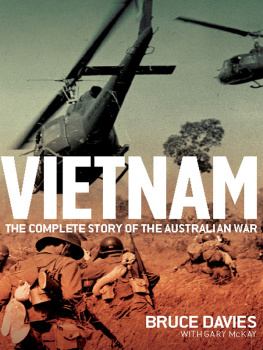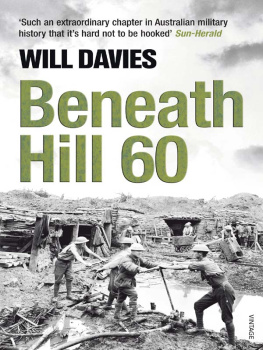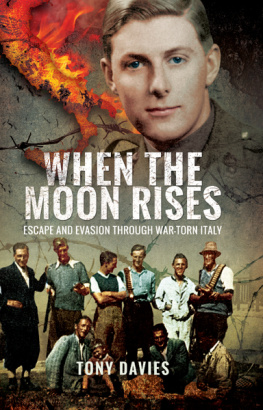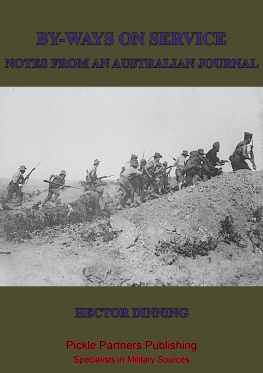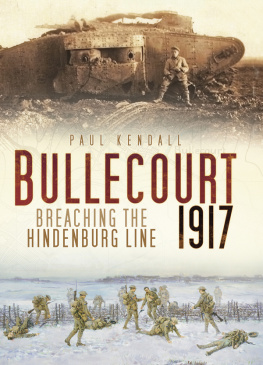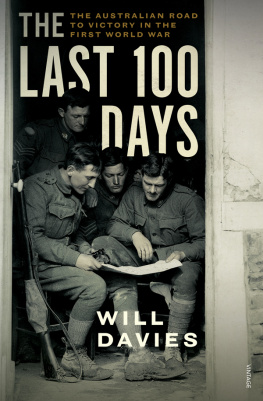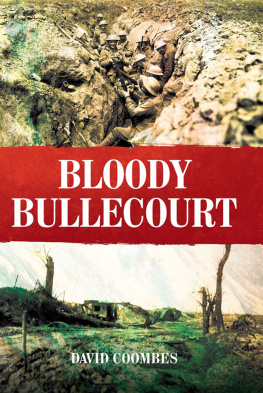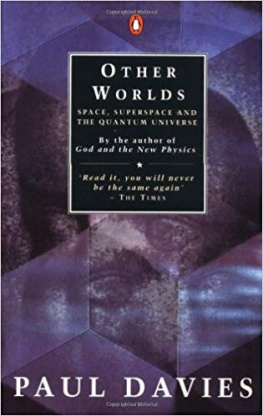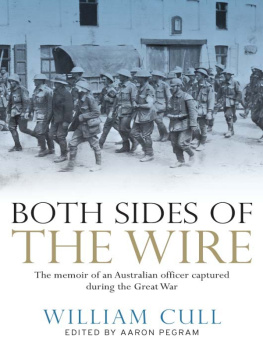Acknowledgements
I am grateful for the excellent support I received from the School of History and Classics at the University of Tasmania. In particular, I would like to single out Professor Michael Bennett and Associate Professor Stefan Petrow who read the first draft of the manuscript and offered valuable advice. I am also indebted to Professor Bennett for helping to secure funding for the project from the Tasmanian government and the Commonwealth Department of Veterans Affairs. I wish to thank research assistant Elisabeth Wilson who retyped, checked and catalogued the Chalk transcripts and Associate Professor Peter Chapman for his help. My thanks extend also to Lyn Richards, Cheryl Hughes and Julie Hill from the schools administrative staff who offered valuable secretarial assistance whenever needed.
As usual, the staff at the Research Centre, Australian War Memorial, were extremely helpful during my visits there. I also wish to thank the staff at the Mitchell Library, Sydney; the Mortlock Library, Adelaide; Battye Library of WA History, Perth; and the Liddell Hart Centre for Military Archives, Kings College, London, for the help offered. Patricia Boxhall, Curator of the Pioneer Village Museum in Burnie, provided valuable assistance, particularly in relation to David Chalks wonderful collection of World War I books and memorabilia which are exhibited at the museum.
I thank Sharon Evans and Denny Neave at Big Sky Publishing for the help they provided, particularly in organising the photographs and maps. I also thank Cathy McCullagh for her painstaking editing and Ian Faulkner for drawing the maps. I express my appreciation to the Australian Army History Unit in particular to Mr Roger Lee and Dr Andrew Richardson for helping to fund the project and providing money for additional research at the Australian War Memorial, Canberra. I also thank the Tasmanian Government, through the Department of Arts, and the Commonwealth Department of Veterans Affairs for other funding.
Last, but by no means least, I would like to record my gratitude to Ian and Jenny Chalk of Wynyard, Tasmania, for entrusting me with completing the research and the task of writing this book following the unfortunate death of their nephew, David Chalk. David left a valuable collection of interviews, personal papers, photographs and unpublished manuscripts all now deposited with the School of History and Classics at the Hobart campus of the University of Tasmania. In writing this book, I have barely tapped into the collection there is still much on offer for the enthusiastic researcher or postgraduate student.
Ian and Jenny Chalk always offered me encouragement and cheerfully answered all my questions, also making me welcome in their home. I can only hope that this book serves, in some small way, to honour the memory of their nephew, David Chalk, and that of his grandfather, ex-POW Ernie Chalk.
APPENDIX I
The Chalk Collection
This book has been based largely on the research and intentions of David Chalk, who died in January 2002. David, it seems, was inspired by reading the papers of his grandfather, Ernie Chalk, a World War I POW, and Ernies recollections of his time in captivity are used quite freely throughout the text. His brother, Richard Chalk, also enlisted, but was killed in action in May 1917.
Ernies father was George Chalk, a prominent farmer from Burnie, in north-west Tasmania, who was a member of the early Burnie Road Trust. George Chalk was also elected to the first Burnie Municipal Council. Ernie who died in 1964 was a member of the Burnie Council from 1946 until 1949.
David Chalks interest in his grandfathers war service also spurred his determination to preserve that record for posterity. Over time, this interest expanded to encompass the Australian World War I POW experience as a whole particularly as he began to realise that, while the hardships endured by Australian POWs in World War II were well documented, there was little written about those captured in the earlier conflict. As a result, he interviewed almost forty old soldiers from the 1st AIF, a significant number of whom were also prisoners of the Germans. For more than fifteen years, David combined his work as a town planner living in Sydney, with travelling the length and breadth of the continent, interviewing and photographing those men, now all deceased.
David Chalks interviews with the old soldiers have all been transcribed (thanks to previous funding from the Australian War Memorial in Canberra) and bound. Those copies, as well as a photographic portfolio of the men and a number of other relevant images and personal papers that constitute the Chalk Collection, are now deposited at the School of History and Classics at the Hobart campus of the University of Tasmania.
David Chalk undoubtedly possessed one of the most comprehensive and valuable personal collections of World War I artefacts and memorabilia in Australia. This collection of more than 300 items including weapons, uniforms, medals, gas helmets, recruiting posters and trench maps was accumulated during the same period that he conducted the interviews. He also acquired a large library of books (almost 130) on World War I. In accordance with Davids final wish, the memorabilia and books have all been donated to the Pioneer Village Museum in Burnie, Tasmania.
APPENDIX 2
Notes from the interviewer
In the process of interviewing World War I veterans, David Chalk collected before and after photographs and details of the mens service records. In addition, he compiled some useful and pertinent points about eight of the men whom he interviewed. Why he chose those particular old soldiers is unclear perhaps he believed that these were the more significant interviews. While I and, I suspect, some readers do not agree with all of Chalks assessments, I have included largely unedited extracts to provide a feel for the personalities of the men and Chalks interviewing technique. Not all of these assessments or stories have been included in the book.
Before and After
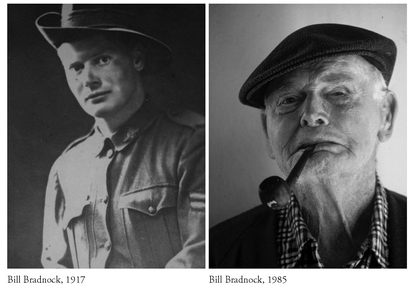
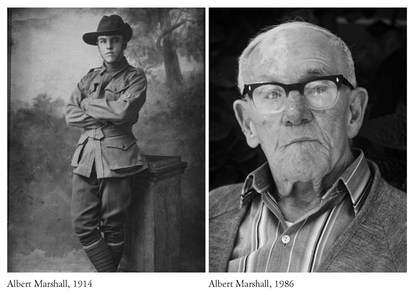
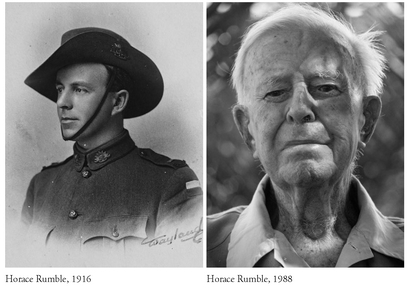
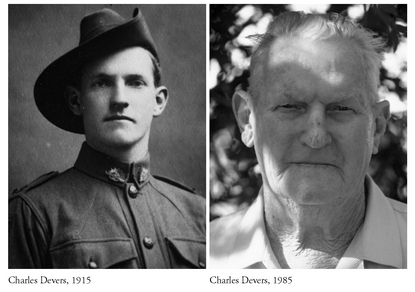
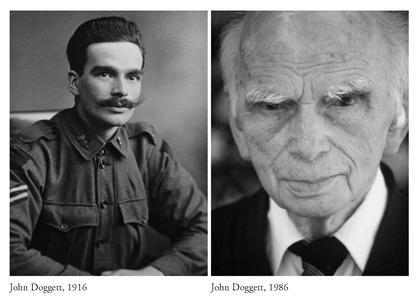
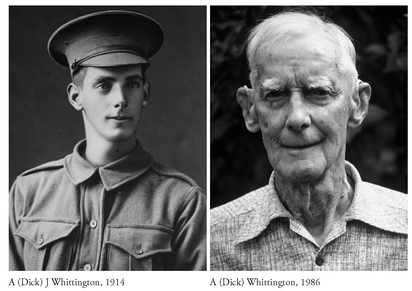
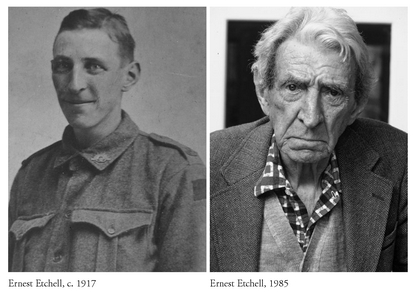
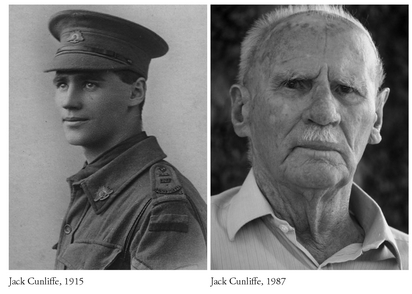
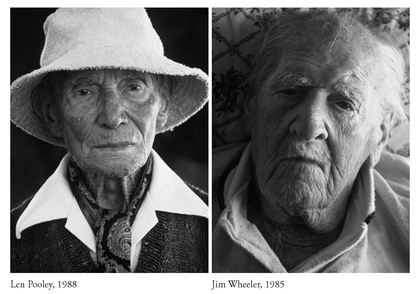
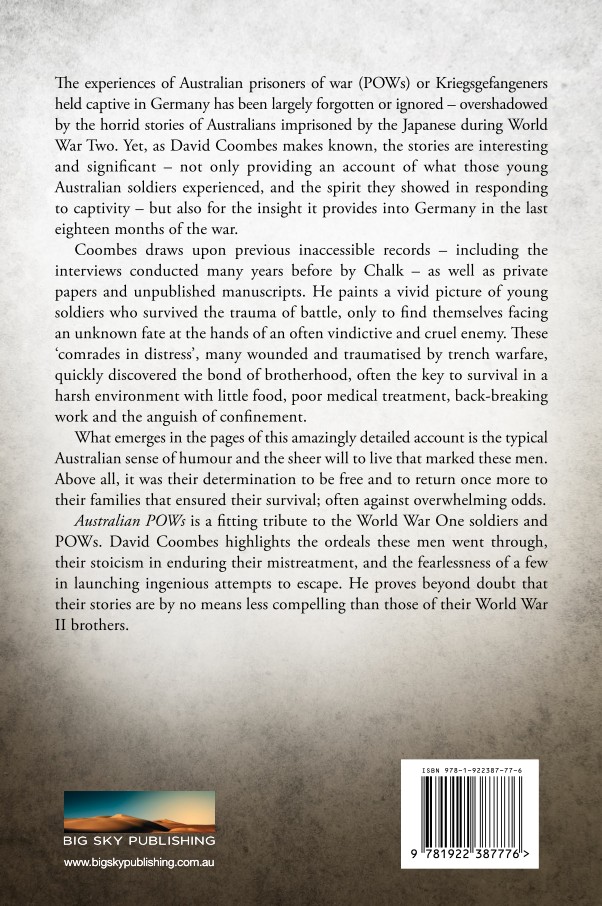
Bibliography
Primary Sources
Australian War Memorial, Canberra
AWM 4, item 1/29/15, Parts 1 & 2, AIF Unit War Diaries, General Staff, Headquarters 1st ANZAC Corps.
AWM 4, item 1/30/15, Part 1, AIF Unit War Diaries, Intelligence Headquarters, 1st ANZAC Corps.
AWM 4, item 1/48/13, Part 2, AIF Unit War Diaries, General Staff, Headquarters, 4th Australian Division.
Next page

